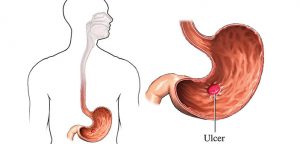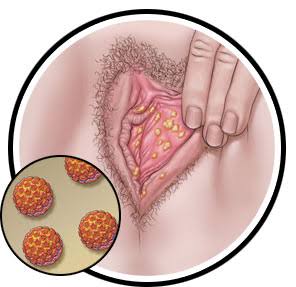
What is stomach/gastric ulcer?
The stomach is a muscular bag that contains powerful gastric juices containing enzymes and hydrochloric acid.
However, stomach ulcer is an open sore on the lining of the stomach, which can cause problems and complications if left untreated. It is also known as gastric ulcers. Stomach ulcer are a type of a peptic ulcer disease. Peptic ulcer are any ulcers that affect both the stomach and small intestines. The stomach produces a strong acid that help digest food and protect against microbes. To protect the tissues of the body from this acid, it also secretes a thick layer of mucus. If the mucus layer is worn away and stops functioning effectively, the acid can damage the stomach tissue, causing an ulcer. Stomach ulcers may be easily cured, but they can become severe without proper treatment. A stomach ulcer can affect anyone at any age, including children, however they tend to occur more often in men than women.
CAUSES
When the stomach lining is damaged by acid, there is a breakdown in stomach’s natural defense against the acid it produces and when this occurs, ulcer forms. Stomach ucler can be caused by variety of factors which include;
- Helicobacter pyloric (H.pylori)
- cancer
- certain medications
Helicobacter pyloric (H.pylori) – This bacteria is the main cause of peptic ulcers which lives in the lining of the stomach and the chemicals they produce cause irritation and inflammation. There are other disorders caused by H.Pylori which are (gastritis) inflammation of the stomach,(indigestion) and dyspepsia. H. Pylori can be transmitted through the sharing of food or utensils, sharing of water (well water), coming in contact with infected vomit.
Certain medications – these medications includes; aspirin or clopidogel, which are taken in excessive doses and are taken to prevent heart attack or stroke, anti inflammatory medications (NSAIDS) are thought to be one of the two fifths of stomach ulcers.
Cancer – in older people, stomach cancer can be present as an ulcer.
Other common causes of ulcer include;
– Hyperactivity or excessive acidity in the stomach.
– A disease called zollinger-Ellison syndrome can cause excess of stomach acid to be produced.
SIGNS AND SYMPTOMS
The most common symptoms of gastric ulcers is a burning sensation or pain in the middle abdomen between your chest and belly button, when you don’t eat, the pain will be more intense and can last for several hours. Dyspepsia also called indigestion is the classical symptoms of a gastric ulcer. Gastric ulcer pain or discomfort can be mistaken for heartburn, which can occur at the same time. Other signs and symptoms include;
– bloating
– Burping or acid reflux
– nausea and vomiting
– weight loss
– pain in the stomach
– feeling easily full
– Anemia (the person starts feeling tired, shortness of breath)
– Dark stools
– loss of appetite
DIAGNOSIS
A range of methods is used in diagnosing gastric ulcer,including;
– H.pylori lab test, breath test, and stool analysis
– Biopsy
– Barium meal, barium swallow.
– Endoscopy (EGD)
TREATMENT
Gastric ulcers can be treated depending on the cause of the ulcer
– Tablets taken to reduce acid content in the gastric juices.
– lifestyle modifications like abstaining from smoking and other lifestyle that triggers gastric ulcer.
– subsequent breath tests to make sure that the gastric ulcer is properly treated.
– medications including antibiotics to destroy the H.pylori colony and drugs that can help in the speedy healing process.








